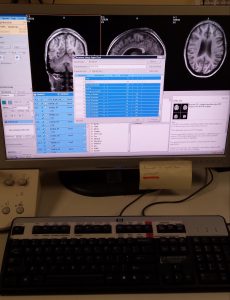Physical Address
Dartmouth offers just over 60 majors, covering most standard majors from Anthropology to Studio Art. While none of these majors can be considered better than the others, there are some things to consider when choosing majors:
How to Succeed as a Dartmouth Premed
Everything you need to know about Dartmouth premed, including premed requirements, the best extracurriculars, and the Dartmouth premed acceptance rate

Part 1: Introduction
Part 2: Dartmouth premed requirements
Part 3: Dartmouth premed extracurriculars
Part 4: Getting into medical school as a Dartmouth premed
Part 1: Introduction
Nestled in a valley near the Connecticut river sits one of the most prestigious educational institutions in the U.S.. Dartmouth University is one of the nine American colleges established before the formation of the United States and as such, they have a rich history and have educated some of the most creative and kind people the world has ever known, such as Dr. Seuss, Mr. Rogers, and Robert Frost.
Now home to approximately 4,556 undergraduates, Dartmouth remains committed to their mission to educate and prepare students, “for a lifetime of learning and of responsible leadership through a faculty dedicated to teaching and the creation of knowledge.”
Equal commitment is expected from every Dartmouth student as they navigate through 2100 available courses every year, over 60 possible majors, and gain hands-on experience with internships, research opportunities, and travel abroad programs. With a 6% acceptance rate, Dartmouth college only accepts the best students to begin with, meaning that while there are plenty of ways to get involved and to grow as a person, true success will only come after some fierce competition for lucrative opportunities.
Additionally, Dartmouth’s medical school, the Geisel School of Medicine, is a major research hub and the fourth-oldest medical school in the United States. Only 92 students matriculate to Geisel SOM every year, but an education at Dartmouth can prepare you to matriculate almost anywhere. By taking advantage of Dartmouth’s resources, staying organized and on schedule, and aiming to achieve the highest stats possible, you’ll be able to succeed as a premed throughout your time as an undergrad!
Part 2: Dartmouth premed requirements
Dartmouth offers a full breadth of interesting classes and majors that aren’t hindered by a standard schedule. Using a calendar consisting of four ten-week academic quarters per year (fall, winter, spring, and summer), Dartmouth allows 15 academic quarters, or terms, between matriculation and graduation. Most students complete their degrees in 12 terms, leaving little room for second-guessing your schedule. There are some stipulations to Dartmouth’s fairly laissez-faire system: students must take classes on campus for fall, winter, and spring quarters of their first year, for two of the three academic quarters of their final year, and for a summer quarter of their choice.
This kind of calendar calls for careful planning, but there’s no need to stress. Dartmouth provides students with support throughout the course selection process. They offer freshman advising along with major-specific advising and they have students share their schedules and experiences through blogs.
All this being said, as a premed, you won’t have the same freedom of choice as some other students. Instead, you’ll need to fulfill a specific set of pre-med requirements, alongside your chosen major.
The Dartmouth advising office normally takes on premed students as well, but there are some additional guidelines provided to help students prepare to apply to most medical schools in the country. Below, we’ve gathered the requirements to graduate as a successful premed student.
Dartmouth also addresses the fact that Texas medical schools require many more biology credits than schools in other states. Typically, eight semester credit hours is enough for medical school, but Texas schools require 14 credit hours. In order to resolve this issue, Dartmouth offers a few pieces of advice:
- Dartmouth courses are the equivalent to typical semester hours. A course+lab translates to 4.5 semester credit hours. Therefore, with a minimum of 2 biology foundation courses you have 9 credit hours, which fulfills the baseline requirements at most med schools (many students do take more for MCAT preparation, their major, or just out of interest).
- A course without a lab , or a lab course without a lecture, are equivalent to 3.5 semester credit hours.
- Because Texas requires 14 biology semester hours, two course+labs would NOT be sufficient for Texas schools. Even with a 3rd foundation course at 13.5 credit hours, an applicant would just miss the Texas requirement.
- However, if a student has 3 foundations and one other course, or 2 foundations and 2 other courses (ex., BIO 2, BIO 11, an upper level BIO, or a Biology-based Neuroscience or Engineering class), then they would have enough credits hours.
- A student could also supplement their biology class hours by taking a final course at a community college, state college, or extension course during the application cycle – many students are able to do this while also working full time. Even an online course would be sufficient since it would not require more lab hours.
Additionally, we suggest taking at least one semester each of writing, statistics, and calculus. These courses will help you pass the MCAT, write fantastic personal essays, and ensure that you’re qualified for as many medical schools as possible.
Sample Dartmouth premed two-year course plan
Of course, it’s not just premed requirements that you’ll need to plan for. There is no premed degree, nor is there a best premed major, so you’ll have to choose a major based on your interests and passions.
Some students may want to choose a major steeped in science, since they’ll already be required to complete so many of those types of courses that overlapping prerequisites will be almost guaranteed to happen. On the other hand, some students may prefer to keep the number of difficult courses to a minimum and choose to major in the arts.
No matter which one you decide on, what really matters is that you’re truly invested in the material and that you excel. Your impressive major will hold you back if it causes you to have a low GPA, while majoring in Art History because you thought it would be easy will make it tough to speak on the subject at length, which you will surely need to do during the med school application process.
We’ve created a sample schedule to show how a student could possibly balance their premed studies with their major studies. Since Dartmouth has produced such prolific poets, the major for this example is English.
How to maintain a high GPA as a Dartmouth premed
Looking at the premed requirements listed above, plus the sample schedule, it’s clear that your time at Dartmouth will be filled with difficult and time-consuming courses. You’ll have to learn to balance this rigorous schedule with your extracurriculars and any other responsibilities you may have.
However, your reward will come through developing new skills in labs, learning new test tactics, and ultimately learning how to successfully lead a busy life.
Maintaining a high GPA is a great way to exemplify your competence in an extremely demanding program, and it places you above large swaths of applicants who otherwise may have ranked above you in the eyes of adcoms. It’s not easy to keep your grades up when the material is so complicated, but there are a number of ways you can alleviate some of your stress and keep your grades under control.
- Avoid taking too many premed required courses in one semester.
- Plan out the requirements for your major early and check in with your advisor at least once per year.
- Balance heavy science classes with easier elective courses or courses with fewer out-of-classroom requirements.
- Allow adequate time for studying and extracurriculars.
- For students who want to go to medical school immediately after graduation, plan your sophomore and junior year schedules around preparing for the MCAT.
- Consider whether a gap year(s) is right for you. Gap years can allow you to stretch out your premed coursework, prepare for the MCAT without any distractions, or participate in an extensive hands-on experience such as joining a research project abroad.
- If you need to space your classes but don’t want to take a gap year, consider summer terms to complete some of your premed coursework.
- Schedule dedicated study time without other distractions. Don’t just squeeze in studying in your spare time. Rather, make it a priority.
- Avoid procrastination. Instead, stay up-to-date on required readings and assignment due dates, even if you have several weeks to complete those assignments.
- Join study groups and attend TA sessions. Group studying can both improve your understanding of a topic and help you make friends!
What’s the best premed major at Dartmouth?
As mentioned earlier, there is no “best” premed major. The best major is one that you are actually passionate about, as this will help you stay motivated through long study sessions and emotionally difficult semesters. Additionally, majoring in something that you are fascinated with will give you lots of material for writing your personal statement and secondary essays. Often, these essays call for you to discuss your major, why you chose it, what you’re passionate about, and a host of other questions that will require you to write about your studies.
Dartmouth offers just over 60 majors, covering most standard majors from Anthropology to Studio Art. While none of these majors can be considered better than the others, there are some things to consider when choosing majors:
- Science majors will have a lot of overlap with your premed studies, but you’ll also be required to take on additional, difficult courses.
- The most popular majors at Dartmouth are social sciences and biomedical sciences; sticking to these subjects will give you a larger network of peers to work and study with.
- Some majors may be more helpful in your eventual career than in your med school career. Consider whether majoring in a foreign language or an interdisciplinary social science may make you fit in a certain geographic area or industry better.
When should you take the MCAT as a Dartmouth premed?
Premed students who plan on starting medical school right after graduation should also plan to take the MCAT sometime during their junior year. By junior year, you will have completed some of the most important science courses on your premed schedule and you won’t have to worry about rushing to retake the exam if something goes awry.
The most important part of MCAT prep is giving yourself ample study time. Studying for the MCAT is a much more intense task than it might seem. Premeds typically create study schedules that include dedicated independent study, self-directed learning, and several practice tests.
Preparing for the MCAT as a premed will take up a lot of time. Studying alone should be at least a three-month process, and before that you should have the following courses completed to ensure you won’t be surprised by anything on the MCAT:
- General Chemistry
- General Biology
- General Physics
- Organic Chemistry
- Biochemistry
Along with these courses, you may want to consider completing courses in psychology and sociology if you have limited knowledge of these subjects. Otherwise, self-directed learning can provide you the necessary competence.
Students taking a gap year(s) following graduation, don’t need to follow this schedule. Taking a gap year is becoming more popular every year, allowing premed students the opportunity to focus on gaining real world and hands-on clinical experience. Gap years also afford students much more flexibility in their MCAT prep, as there are multiple test dates every year and study schedules aren’t racing against the graduation clock.
Regardless of whether you decide to take a gap year or continue on to med school right after graduation, you’ll need to have your MCAT scores back before the start of the application cycle. Official scores are usually released 30–35 days after an exam date, meaning students need to take the MCAT at least one to two months in advance of the start of their desired application cycle. AMCAS generally opens the first week of May.
Is Dartmouth Good For Pre Med

Diary of a Dartmouth Pre-Med
I’m going to start with a disclaimer: the Pre-Health track at Dartmouth is not easy. Many a time, I have been on the struggle bus and questioned why I chose it. However, that doesn’t mean that it’s impossible or that it’s not worth it. If you’re passionate about health in any variety of forms, I promise, it’s worth it! As I’m taking my last two Pre-Med courses this year (I can hardly believe it!), I’ve been able to reflect on some of the things that have made being a Pre-Med here at Dartmouth fun, amidst all the business and distraction.
Another disclaimer: These are all my personal experiences with the Pre-Health track (Read: track, not major). While I’m sure not every Pre-Health student shares these experiences, I think everyone does find things that make the tough stuff worth it. In looking back at some of the snapshots of my Pre-Med life, I’ve highlighted some of the things I’ve loved getting to explore through health and science-related courses and opportunities. My favorites include…
Research
When I worked in Professor Tse’s Neuroscience lab through the Women in Science Project. I learned how to scan subjects in the fMRI and got to be scanned myself for one of the lab projects. (This is a picture of my brain!) Funny story-I sent this to my mom one week after lab and she freaked out, thinking something was wrong with me. I forgot to tell her it was for my research until after…#sorrymom

Making lab fun!
When I got to play with Azo Dyes in organic chemistry lab and make pretty colors, and collaborated with my lab buddies to combine our colors and create art!! (Okay, maybe I shouldn’t go so far as to call it art…but who is to say chemists can’t paint with dyes??) Or, when I dreaded going to Chem lab but decided to dress up my stuffed teddy bear in lab goggles to make it just a little more bearable (get it?).


Holiday festivities
When I have to walk into the chemistry or physics building, I get cheered up by a Chem-set Christmas tree the department sets out! Every year I forget about it, and every year it successfully surprises me. Day = made.

Shadowing
When I get so excited about Shadowing a PCP (read: Primary Care Physician) through the Nathan Smith Society Shadowing Program that I have to snap all my friends and let them know. (Yes, I’m a nerd. But, it’s okay- they are too.) I’m really excited to get to visit a clinic this term and to ask questions about life as a primary care doc!

Those are just some of the many things that I’ve enjoyed as part of my life as a Dartmouth Pre-Med. Looking ahead, I can confidently say that I’m excited to see where next steps take me in learning more about health and health professions!









